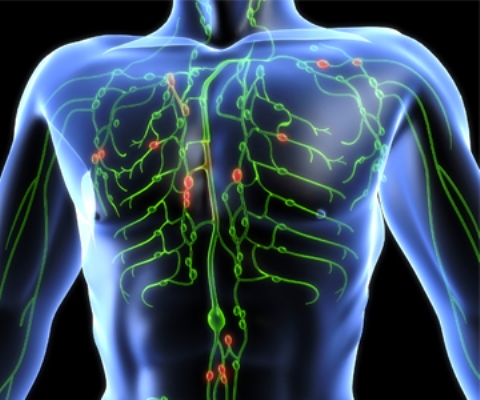
RGCON 2014 titled Lymphoma, Biology to Therapy is an effort to hear about these interesting stories from the great raconteurs and experts from the country and abroad. We hope to catch your attention and make you a part of this exciting experience of teaching – learning.
Lymphomas are a group of malignant neoplasm of lymphoid tissue. There are 2 main types of lymphomas – the Hodgkin lymphoma and the Non-Hodgkin lymphoma. The former has 5 subtypes and the latter nearly 60, with each having a distinct biology that determines the way these tumors look under the microscope, spread to various part of the body, respond to treatment and the optimal treatment required. Classifying lymphomas has been difficult and still an evolving process. Newer insights into molecular biology will help refine the classification. Grey zone lymphomas continue to be diagnostic and therapeutic nightmares. Some breaking news in double hit lymphomas and B Cell Lymphoma unclassifiable intermediate between DLBCL and HL has started emerging and shall soon build up into a proper story.
 Scientists are busy defining molecular alterations of lymphoma cells. This shall provide insight into why these cells grow rapidly or live indefinitely and freeze at some point in maturational process that precludes progression to competent lymphoid cells capable of normal immune reactions. Once this is understood, drugs may be developed that block this process. As an example, Brutons tyrosine kinase (Btk) is an element of several signal-transduction pathways regulating survival, activation, proliferation and differentiation of B cells. Engaging Btk by an inhibitor can block these effects and has been approved for usage in Chronic Lymphocytic Leukemia and Mantle Cell Lymphomas. Likewise, Diffuse large B cell lymphomas, the commonest of all lymphomas, has been separated on the basis of gene expression profiling into three more homogenous categories, of which Activated B Cell Type a poor responder to chemotherapy has its molecular pathway thread bared yielding thrilling information with immense potential for use in precision therapy of Activated B Cell Type of DLBCL.
Scientists are busy defining molecular alterations of lymphoma cells. This shall provide insight into why these cells grow rapidly or live indefinitely and freeze at some point in maturational process that precludes progression to competent lymphoid cells capable of normal immune reactions. Once this is understood, drugs may be developed that block this process. As an example, Brutons tyrosine kinase (Btk) is an element of several signal-transduction pathways regulating survival, activation, proliferation and differentiation of B cells. Engaging Btk by an inhibitor can block these effects and has been approved for usage in Chronic Lymphocytic Leukemia and Mantle Cell Lymphomas. Likewise, Diffuse large B cell lymphomas, the commonest of all lymphomas, has been separated on the basis of gene expression profiling into three more homogenous categories, of which Activated B Cell Type a poor responder to chemotherapy has its molecular pathway thread bared yielding thrilling information with immense potential for use in precision therapy of Activated B Cell Type of DLBCL.

Lymphoma cells contain protein antigens on their surface. Monoclonal antibodies that identify these antigens are capable of destroying the lymphoma cells while causing little toxicity. This treatment strategy has already proven effective. Besides, rituximab, a whole lot of new immunotherapies are joining the armamentarium in treatment of relapsed lymphomas. In addition, a variety of drug “antibody combinations have been introduced recently. Anti CD30 antibody conjugated to a toxin (brentuximab vedotin) has been approved for use in Anaplastic Large Cell Lymphoma and Hodgkin Lymphoma.

Exciting insights in understanding Biology of Lymphomas is culminating in improved therapeutic options and an insidious but sure paradigm shift in care of lymphoma patient.

RGCON 2014 titled Lymphoma, Biology to Therapy is an effort to hear about these interesting stories from the great raconteur and experts from country and abroad. We hope to catch your attention and make you a part of this experience of teaching – learning.

| Dr. Anurag Mehta Director Lab Services Organizing secretary RGCON 2014 |
Dr. Vineet Talwar Sr. consultant Oncology Organizing secretary RGCON 2014 |
Be a part of Elets Collaborative Initiatives. Join Us for Upcoming Events and explore business opportunities. Like us on Facebook , connect with us on LinkedIn and follow us on Twitter , Instagram.
"Exciting news! Elets technomedia is now on WhatsApp Channels Subscribe today by clicking the link and stay updated with the latest insights!" Click here!
















